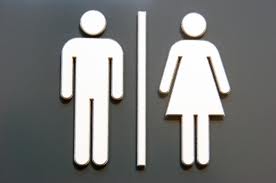More writers (male and female) of non fiction seem to be using feminine pronouns and possessive pronouns to cover both genders, eg, 'the writer tells herself that her readers...' Until recently, I thought, 'fair enough, the masculine form has had a good run'.
However, the practice has begun to irritate me. Why? (As the only male in our family, I've found it to be safer practice to ask before commenting.)
Do most women object to mankind being used to encompass men and women? Or to God being referred to as He for his male and female flocks? If they do object, fine by me. Not long ago, the masculine form was accepted as generic for men and women; so the wish, now, to indicate both genders seems fair. However, such balance can render sentences longer and uglier: too many 'he or she' and 'himself/herself' constructions. And the journalistic practice of deploying plurals to provide uncontroversial 'they/them/themselves' alternatives isn't always appropriate.
I guess that using the feminine generic for both genders results from the pendulum swinging beyond the centre of its arc, under laws of equilibrium (and justice), after being stuck so far and so long to one side.
I hope it doesn't stick on the opposite side. Inaccuracy or political correctness may render the masculine descriptor for both sexes unacceptable, but is a feminine version any better?
I don't think so. And I part company with those who wish it to become some form of new standard, or simply a matter of writer's choice.
Is there a solution that is both elegant and fair?
19 December, 2010
Subscribe to:
Posts (Atom)


